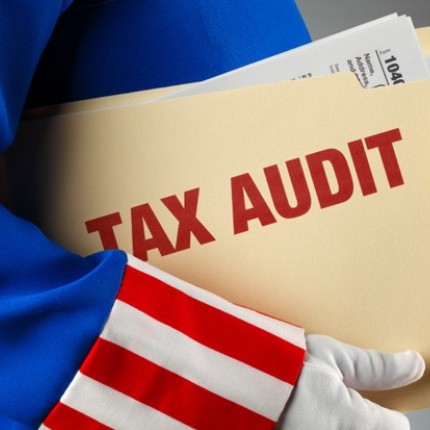How to Survive Your First IRS Audit
 It’s bound to happen. You get a letter from the IRS—you’re being audited.
It’s bound to happen. You get a letter from the IRS—you’re being audited.
Since most taxpayers are intimidated by the IRS and don’t want deal with it, this is where the tax preparer earns his stripes, by swooping in to save the day, according to Chuck McCabe, president of Peoples Income Tax and The Income Tax School.
But what if this is your first time? McCabe gives the following tips he has learned over the years for dealing with an IRS audit on behalf of a client.
Records Needed
First, you should coach all your clients to maintain their records.
“Preparation for an audit should begin long before an audit occurs,” he said. “If you want to be better prepared and ready for an audit, coach all clients on maintaining records such that they are always ready for an audit.”
This means the following, McCabe indicated:
- Keeping primary records of bills and receipts
- Keeping secondary records such as mileage logs, spreadsheets or other summary information
- Keeping all tax returns
- Keeping all backup information for the current and past three years
- Ensuring that all business clients have a separate bank account for the business
- Ensuring the business client only deposits income for the business and pays legitimate business expenses from the business account
“If the examination is pertinent to a specific issue, have your client gather all relevant documentation on the issue in question,” McCabe said. “The letter your client receives from the IRS will list the items being questioned. If more time is needed to gather the required information, a request can be made well in advance of the examination date. Naturally, if the entire return is being examined, the documentation requirement will be more extensive. And if the return being audited is a business return, the auditor will very likely perform a bank deposit analysis. This is one of the main reasons your clients need to keep separate bank accounts for their businesses,” McCabe said.
Examination Locations
Examinations of returns may be done via mail, at the examining representative’s office, in the taxpayer’s home or business, or the location of the taxpayer’s personal representative—your office, McCabe observed.
“Examinations that take place in a client’s home are particularly dangerous,” he cautioned. “This allows the revenue agent to obtain information on the relative standard of living of your client that might be inconsistent with the tax return that was filed. It also gives the examiner an opportunity to examine things like the ‘home office’ where your client may be taking a deduction.” And, he added, “Non-business items located in the room or area designated as the home office will not help your client’s case in defending a home office deduction.”
Mental Preparation
Dealing with an IRS examiner can be stressful.
McCabe emphasized. “Before you go into the examination, put yourself in the auditor’s shoes,” he advised. “Anticipate items that the auditor will want to review and then thoroughly examine each item. Ensure there is documentation for all deductions—especially those that are questionable. Moreover, you should also ensure that you are thoroughly familiar with the entire tax return being examined, and be able to explain in detail the source of each item on the return,” he said.
Organization is Key
It is important the documents you are providing the auditor are presented in an organized manner, McCabe urged.
“Make sure to include receipts but do not present the auditor with a box of unorganized receipts. And, of course, don’t give away too much. Only provide documents needed to prove a deduction or income. Providing too much information could cause the examining agent to review areas that might not have been considered before,” McCabe cautioned
Source: Accounting Today




